Description
ABSTRACT
An Examination of Governance and Operational Framework of Free Zones in Nigeria
Dr. Nojeem Amodu*
The free zone scheme is fairly common around the world especially within the so-called less industrialised economies. However, the free zone framework has been shrouded in myths and has also not yielded expected industrialisation outcomes for the developing economies like Nigeria. This paper interrogates the legal, regulatory, fiscal and financial framework of free zones schemes in Nigeria. It adopts both descriptive and explanatory methodologies; in providing conceptual clarification for the zone construct, the paper describes and explains the operational realities surrounding free zone management and governance within the country. It finds that the free zones in Nigeria, however labeled, are uniquely designed legal cum policy enclaves whose legislative and regulatory regime are still riddled with needless ambiguities. Following the said finding and towards realising investment growth and sustainable development for both the investment hubs and other areas within the host country, the article proposes a few policy reforms and regulatory amendments to free zone governance and operations in Nigeria.
Keywords: Free Zone, Capital Repatriation, Governance, Investment, Operations
INTRODUCTION
Towards the attainment of industrialisation among the less developed countries of the world, many countries of the world have adopted two major investment strategies viz: the import-substitution mechanism and the export-oriented strategy.1 The concept of free zones is one of the flexible policy designs associated with the latter. There are different free zone models with varying features. The models include, but not limited to: Free Industrial Zones (FIZs), Free Trade Zones (FTZs), Export Processing Zones (EPZs), Customs Free Zones (CFZs), Free Economic Zones (FEZs), Special Economic Zones (SEZs), industrial zones or parks and many others.
The free zone concept is not new to Nigeria. Nigeria’s first export processing zone was set up in Calabar in the late eighties. However, ther appears to be lots of misunderstanding (if not outright ignorance) surrounding the concept, its workings within the Nigerian business community and the significance of regulators in the sector.2 This article seeks to provide explanation required towards making participant investors appreciate the raison d’etre for designing free zones and ensuring participating individuals or companies take full advantage of the scheme.
* Ph.D., BL. Group Principal Legal Officer/ Contracts Specialist, Dangote Industries Limited.
- J. Amado, ‘Free Industrial Zones: Law and Industrial Development in the New Internatonal Division of Labor’ (1989) 11 (1) U. Pa. J. Int’l Bus. L. 82. (Hereinafter ‘Amado FIZs’). Amado explained that import-substitution generally consists of the protection of local industries supplying local market with manufactured goods which in the past were imported while export-oriented strategies focus on the promotion of industries that orient a substantial part of their production to foreign market.
- See the statement credited to the Managing Director of the Nigeria Export Processing Zone Authority (NEPZA). Mr. Emmanuel Jime on the occasion of the visit of eminent Benue sons of politica and professions paid him a courtesy call in his office. <http://www.nepza.gov.ng/index.php/news/item/5-nigerians-yet-to-understand-free-zones-concept-jime> accessed 21 January, 2018.

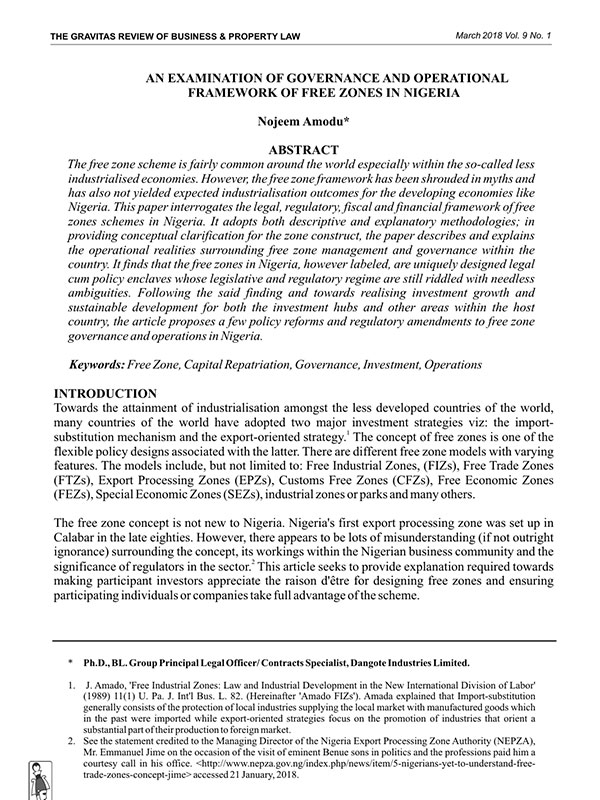
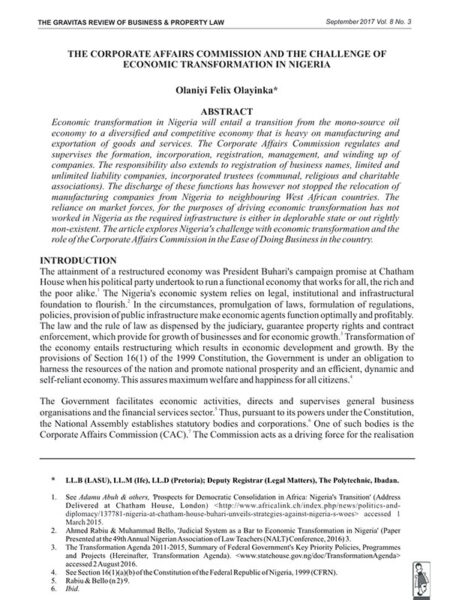
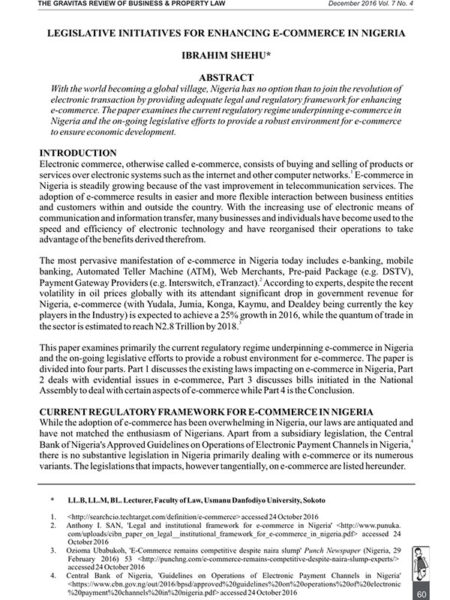
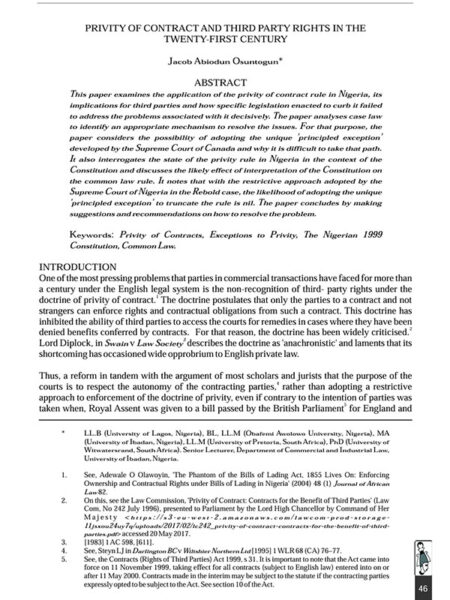
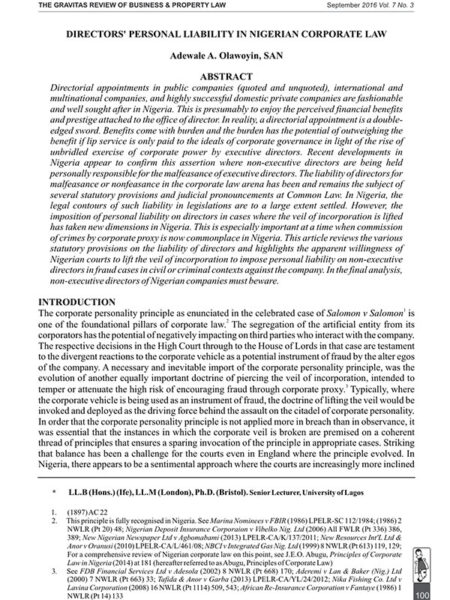


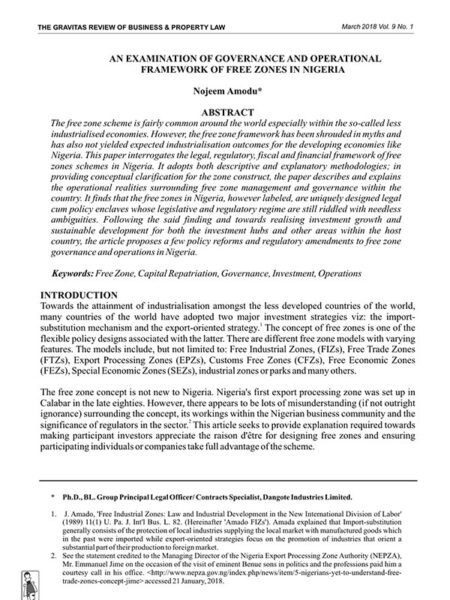
Reviews
There are no reviews yet.